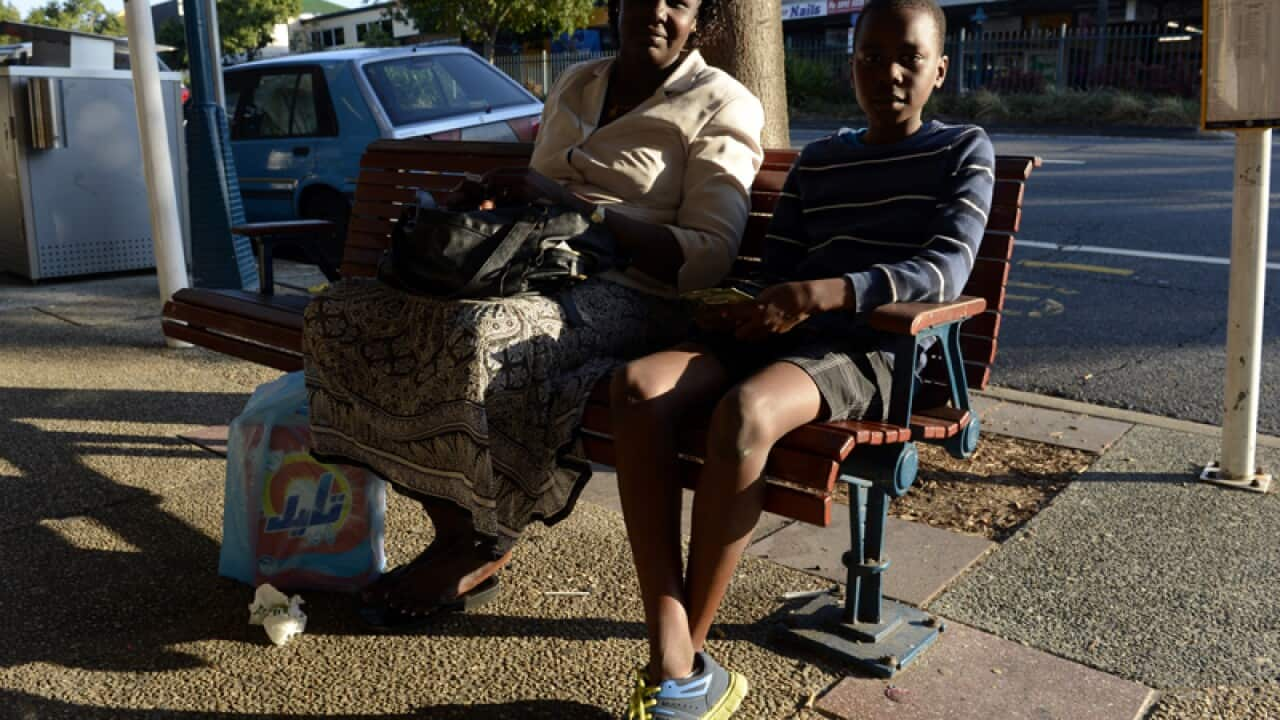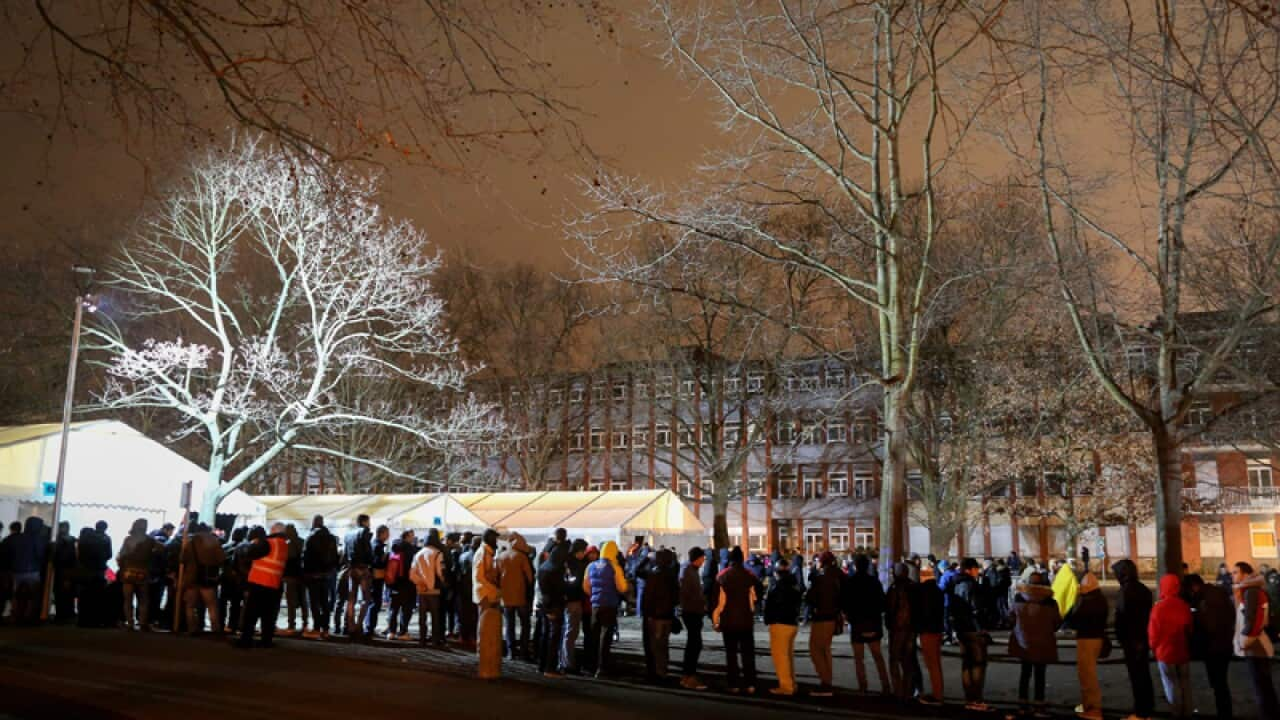One year after making a commitment to take an additional 12,000 refugees from the Syria-Iraq crisis, Australia has settled around 3,400 additional people - less than 30 per cent of the target - SBS can confirm.
Former Prime Minister Tony Abbott made the one-off commitment on September 9 last year. The pledge was in addition to the thousands of Iraqi and Syrian refugees the government planned to take under the annual global humanitarian intake of 13,750.
In a joint statement, World Vision, Oxfam, CARE, Save the Children and Plan International have condemned the government for failing to live up to its promise.
"There is a point at which a promise begins to look hollow when it is not honoured, and Australia has reached that point," said Tim Costello from World Vision Australia.
"The government always says to us, 'A conservative government will set out the benchmarks and we will deliver to benchmarks, and you can hold us to account when that happens',” Ian Wishart, CEO of Plan International, told SBS.
“It set the benchmark of 12,000 people and said it was to be done in a timely fashion and it’s not being done in a timely fashion,” he said.
In April, six months after the commitment, the government reported that it had accepted less than 200 refugees under the extended program. SBS understands there has been a significant ramping up of arrivals in the last eight weeks.
However the Refugee Council of Australia told SBS they were happy with the development.
“Despite a very slow start to the intake of Iraqis and Syrians under the one off 12,000 refugee intake, we are pleased to hear from our members that there has been a rapid acceleration of arrivals,” Tim O’Connor, the Council’s acting CEO said.
recommended

Aust 'not ready' for African refugees
The Refugee Council said they expect the increased flow of refugees to continue. More than 10,000 visas have been granted to Syrian and Iraqi refugees in the last 12 months, but many are yet to arrive in the country.
In the same period, Canada has taken over 30,000 refugees from Syria and Iraq while the United States has taken more than 10,000.
"The comparison is pretty stark," Mr Wishart said.
In addition to the 3,400 refugees taken under the extended program, Australia has resettled around 4,600 refugees under the regular annual humanitarian intake.
A total of 15,155 refugees have been taken in the last 12 months. At the time of the announcement last year, Prime Minister Abbott said that Australia would “move quickly” on the additional allocation.
At the time of the announcement last year, Prime Minister Abbott said that Australia would “move quickly” on the additional allocation.

Prime Minister Justin Trudeau greets refugees arriving in Canada from Syria. Canada has been praised for its response to the refugee crisis. Source: AP
Immigration officials said delays have been caused by health, character and security checks which are required before resettlement could be granted.
“While visa processing and resettlement of this cohort is a high priority, security will not be compromised,” a spokesperson for the Department of Immigration told SBS.
“Most applications take a number of months to process,” they said, “It is not possible to be more precise than this because processing times vary according to the circumstances of individual applicants.”
“People who are granted a visa under the offshore Humanitarian Programme generally take some time to settle their affairs in their country of first asylum before they travel to Australia,” the spokesperson said.
Mr Wishart says the excuses aren't good enough.
“No one wants to compromise on health or security, but other countries have managed to process people in a timely fashion and we haven’t,” the Plan International CEO said. “It would seem it’s not really a priority.”
Amnesty International has laid blame for the slow progress on the Immigration Minister, Peter Dutton.
"Australia must get on with fulfilling the promise we made to provide people with a safe place to settle," National Director Claire Mallinson said.
"Every day that Minister Dutton fails to meet his commitment to settle the 12,000 people from Syria and Iraq is another day they spend in a war-torn country without hope of a peaceful and safe life,” she said.
SBS sought comment from the minister's office - asking whether the government had allocated proper resources to process the increase - but did not receive a response. Based on the regular quota and the additional quota announced by the Abbott government, Foreign Minister Julie Bishop said that Australia is taking more refugees than ever.
Based on the regular quota and the additional quota announced by the Abbott government, Foreign Minister Julie Bishop said that Australia is taking more refugees than ever.

Julie Bishop has said that the 2015-16 intake will be the largest every by an Australian government in post-war history. Source: AAP
The government has also committed to lift the current global humanitarian intake from the 13,750 in 2015-16 to 16,250 in 2017–18 and to 18,750 in 2018–19.
The Labor party has said that if it were in power, it would raise the annual intake from 13,750 refugees to 27,000 refugees by 2025.
The Gillard government raised the intake to 20,000 in 2012, but it was later wound back by the Abbott Government.
Recommended

Up to 300,000 refugees expected in Germany
The Australian Refugee Council told SBS they welcomed the government’s commitments and the recent uptick in arrivals.
“Contrary to the manner in which the government currently treats people seeking asylum, Australia has one of the most successful refugee resettlement programs in the world,” Tim O’Connor said.
He said member organisations were "very confident" they could meet the increased demand for services, a position echoed by others in the sector.
“We look forward to welcoming these people to our communities and ensuring they have the appropriate support to quickly begin to rebuild their lives and to start to contribute to our country,” he said.
More on peace and conflict:

The catastrophic civil war the US and UK don’t want you to know about













